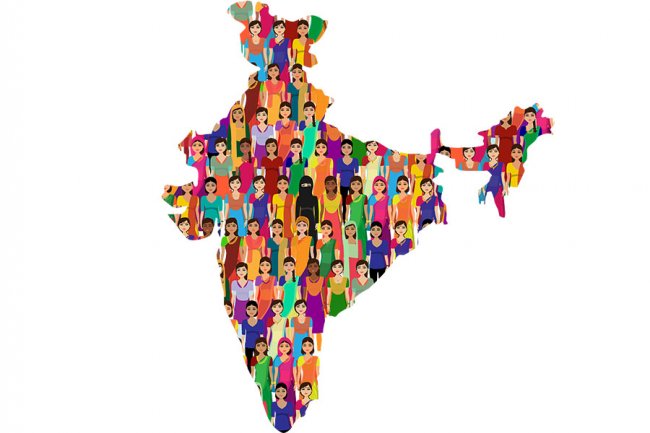MakeMyTrip, GoIbibo, and OYO are hit with fines and other penalties from the Competition Commission of India (CCI) for anti-competitive behaviour.
For abusing its dominant position and also for an anti-competitive agreement with OYO, the Competition Commission of India (CCI) has imposed monetary and behavioural penalty on MMT-Go (MakeMyTrip and GoIbibo) (Oravel Stays Limited). Moreover, OYO was fined money for entering into an anti-competitive agreement with MMT-Go in 2018, per which MMT-Go removed OYO's rivals from its web portals.

For the purpose of delineating the relevant market, the CCI carried out an in-depth analysis, placing a particular emphasis on such an assessment in the case of platform markets. The CCI, when asked to comment on the role of interdependencies in two-sided or multi-sided markets, stated that it is important to understand the nature of the interaction and interdependencies between the different sides of a multi-sided platform in order to ascertain the impact of such interaction or interlinkages in the analysis. This is because it is important to understand the nature of the interaction and interdependencies between the different sides of a multi-sided platform. However, the role of such interdependencies at the time of delineating relevant markets should be limited to understanding the impact of such interactions on the substitutability analysed primarily from the aggrieved user side. This should be the only purpose for which such interdependencies are considered. When there appears to be two distinct products or services that are being supplied (by the same seller, i.e., the OTA) to two distinct set of buyers (end-consumers and hotel partners), determining substitutability only from the perspective of one user group (i.e., the end-consumer in the present case) may lead to an error that incorrectly conflates the competitive constraints that exist separately and distinctly in relation to each user side.
Despite this, the CCI conducted an analysis of the substitutability of the components from the point of view of both user groups. The CCI relied on the 'Search, Compare and Booking' (SCB) functionality test and observed that due to the unique characteristic features of the OTAs, they may not be comparable with other online modes. This was observed from the perspective of end-users.
In regard to the interchangeability of OTAs with other modes of booking from the perspective of hotels (including franchise hotel service providers), which the CCI found to be more appropriate for relevant market determination in light of the allegations that were taken into consideration, the CCI came to the conclusion that OTAs were not equivalent to the other modes of booking. According to the opinions of the CCI, hotel partners want to be listed on OTAs primarily for the purpose of increasing their visibility and discoverability. The CCI made a distinction between having a presence on an online platform and being visible on that platform. They came to the conclusion that when a hotel partner chooses a channel of distribution like an OTA, it is more for visibility (and discoverability), which is focused on ensuring that the target market can discover the hotels, as opposed to simply having a presence on the online portal. Regarding multi-homing on the part of end-users as well as hotel partners, the CCI was of the opinion that multi-homing does not necessarily imply that there is a single relevant market that encompasses all of the options that end-users use to finalise their bookings. The presence of hotels on multiple channels does not necessarily mean that they can be substituted for one another; rather, this presence may be consistent with complementary use in order to target different consumer groups.
The CCI came to the conclusion, among other things for these reasons, that firstly, online and offline do not belong to the same market, and secondly, even within the online segment, OTAs constitute a separate relevant product market. These conclusions were reached for the following reasons: As a result, the market that was considered to be relevant was referred to as the "market for online intermediation services for booking hotels in India."
MMT-Go was found to hold a dominant position in the market for online intermediation services for booking hotels in India during the period of inquiry, which was 2017-2020, after the Competition Commission of India (CCI) considered various factors under Section 19(4) and gave due regard to the dynamic nature of the market under consideration. This led to the CCI reaching its conclusion that MMT-Go held a dominant position in the market.
The parity obligation via which MMT-Go was imposing wide price parity as well as room availability parity obligations on its hotel partners was the first thing that the CCI looked at when conducting its investigation. However, what confused the CCI in this particular matter was the imposition of price parity in conjunction with other impositions, such as room parity obligations, deep discounting strategies, and exclusivity conditions, which called for a simultaneous evaluation of the impact and reinforcing nature of such impositions.
The CCI came to the conclusion, after conducting an in-depth analysis, that the combination of deep discounts and parity conditions produces an ecosystem that strengthens MMT-dominant Go's position in the relevant market. To begin, it enables MMT-Go to maintain and further expand its network of users and travellers, all of whom are more likely to make use of the platform in order to take advantage of the most attractive offers. Second, it impedes the process of competition between online travel agencies (OTAs) by reducing the competitive levers and instruments that other portals have at their disposal. For instance, these other portals are unable to negotiate better prices with hotels by offering lower commission rates. Thirdly, the adverse effect that this has on the sale of rooms through other platforms and channels, as well as the user bases of those platforms and channels, further emphasises the degree to which hotels are dependent on MMT-Go, as well as the imbalance in bargaining power that already exists between MMT-Go and its hotel partners. Fourthly, increased sales made through MMT-Go may result in higher commissions being charged by the company on a unilateral basis. This may give the company the ability to pass on discounts that are admittedly funded through these commissions; however, this may have an adverse impact on the prices at which hotel rooms are being offered to end consumers. As a result of this finding, the actions of MMT-Go were determined to be in violation of Section 4(2)(a)(i) of the Act when read in conjunction with Section 4(1) of the Act.
The Competition Commission of India (CCI) noted that MMT-Go is a dominant player in the relevant market, and consumers heavily rely on the results that are shown on MMT-website. Go's This allegation pertains to a misrepresentation of information by MMT-Go, wherein MMT-Go was showing certain hotels/property as'sold out' on its portals when the same were only delisted and may have had available rooms for booking. Any such misrepresentation of information on MMT-platform Go's could have an effect on the perspective of the consumer and could possibly discourage the consumer from searching on alternative channels for the same hotel, under the assumption that the hotel is sold out. This could lead to a lower number of room bookings at the hotel partner's establishment, as well as a reduction in the amount of competition among the budget hotels that are registered with various OTAs, which could ultimately result in the exclusion of such hotels. In addition, this act of misrepresentation could be considered exploitative in nature with regard to such hotels.
Although the DG had also returned a finding of predation against MMT-Go, the CCI took note of the submissions made by MMT-Go. In light of these submissions, the CCI found it difficult to determine the reliability and validity of the assumptions on which the DG's assessment was based, so it was unable to rule on whether or not the DG's assessment was valid. As a result, the CCI did not agree with the conclusion reached by the DG.
In addition to investigating MMT-abuse Go's of its dominant position, the CCI looked into the commercial arrangement that existed between MMT-Go and OYO, according to which FabHotels and Treebo were removed from the former's online portals in the year 2018. The Competition Commission of India (CCI) came to the conclusion, after reviewing the evidence that was presented, that there was an agreement or understanding between OYO and MMT-Go that was of the nature of a vertical arrangement that fell under the purview of Section 3(4)(d) of the Act when read in conjunction with Section 3(1) of the Act. The CCI also found that this agreement had negatively impacted market competition by denying access to an important channel of distribution through foreclosure. In addition, the CCI made the observation that even though FabHotels and Treebo were relisted by MMT-Go as a result of the intervention of the CCI in 2021, such relisting must be carried out on terms that are equitable.
The Commission on Competition and Intelligence (CCI) came to the conclusion that the actions of MMT-Go violated the provisions of Section 4(2)(a)(i) and Section 4(2)(c) when read in conjunction with Section 4(1) of the Act. This conclusion was reached on the basis of the detailed reasoning that was provided in the order. In addition, it was determined that the agreement between MMT-Go and OYO was in violation of Section 3(4)(d) of the Act when it was read in conjunction with Section 3(1) of the Act.
The Competition and Consumer Commission (CCI) issued a number of broad behavioural remedies to MMT-Go after noting that in addition to levying a monetary penalty, it is absolutely necessary for the fair market regulator to ensure an environment that supports fair competition. MMT-Go has been instructed, among other things, to modify the agreement it has with hotels and hotel chains so that the price and room availability parity obligations with respect to other OTAs are removed or abandoned. Additionally, the exclusivity conditions that exist among other things in the form of a D-minus clause are to be removed. In addition, MMT-Go has been instructed to provide access to its platform to hotels and hotel chains in a manner that is fair, transparent, and non-discriminatory. This will be accomplished by MMT-Go formulating the terms and conditions of the listing on the platform in an objective manner. MMT-Go has also been instructed to provide transparent disclosures on its platform regarding the properties that are not available on its platform. This could be due to the termination of the contractual arrangement with any hotel or hotel chain, or it could be due to the exhaustion of the quota that was allocated to MMT-Go by such a hotel or hotel chain. Either way, MMT-Go is required to comply with this directive.
In addition, monetary penalties have been imposed on MMT-Go and OYO at the rate of 5% of their relevant turnovers, totaling Rs 223.48 crore [Rupees Two Hundred Twenty-Three crores and Forty-Eight Lakhs only] and Rs 168.88 crore [Rupees One Hundred Sixty-Eight crores and Eighty-Eight Lakhs only] and Rs 223.48 crore [Rupees Two Hundred Twenty
What's Your Reaction?




















